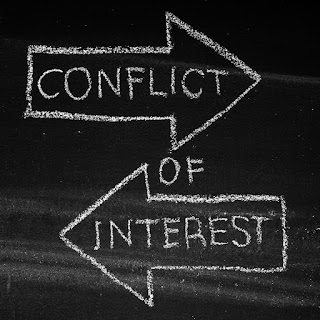Supreme Court Justice Clarence Thomas is under fire after the public disclosure of decades of valuable gifts he's received from right-wing donor Harlan Crow, including lavish vacations and even real estate.
Politics aside, this story underscores the importance of having a clear and unambiguous conflict of interest policy within your organization and enforcing it when it's violated.
What should a conflict of interest policy contain? Here are five suggestions:
1.) Define what constitutes a conflict of interest (see above), with specific examples. For example, an employee who has a financial interest in a company that the organization is considering doing business with could be seen as having a conflict of interest. You should also consider prohibiting employees from taking anything of value at all, or over a certain de minimus dollar amount (e.g., $50).
2.) Outline the process for reporting a suspected conflict of interest. This should include the name of the persons or departments to whom employees should report the conflict and the steps that will be taken to investigate and address the issue.
3.) Prohibit retaliation. Because we want employees to feel comfortable coming forward with their own potential conflicts or blowing the whistle on the conflicts of others upon discovery, it's important that they receive meaningful assurances that anyone who reports a conflict of interest will not be penalized in any way.
4.) Explain consequences. Violating a conflict of interest policy should result in disciplinary action, up to and including termination, depending on the severity of the violation. It is important that employees understand the consequences of violating the policy so that you can fairly hold them accountable for breaches of ethics. Moreover, a policy without any teeth or that isn't fairly and equally enforced isn't worth the paper on which it's printed. See SCOTUS. No one should get a pass, no matter who they are.
5.) Offer guidelines and training. To prevent conflicts of interest from occurring, the policy should also provide guidelines on how to avoid them. This could include providing training to employees on what constitutes a conflict of interest, requiring employees to disclose any potential conflicts of interest, and implementing checks and balances to ensure that decisions are made in the best interests of the organization and not influenced by personal interests.
In conclusion, a conflict of interest policy is an essential tool for any organization that wants to maintain its reputation, comply with legal and ethical standards, and prevent conflicts from arising, all of which helps ensure that employees act in the best interests of the organization, while maintaining the trust and confidence of employees, customers, vendors, and others.

